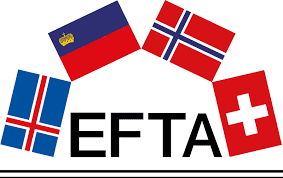India has taken significant strides towards strengthening its global trade network, particularly with the European Free Trade Association (EFTA). Commerce Secretary Sunil Barthwal’s recent four-day visit to Norway, commencing on November 22nd, underscores the nation’s commitment to implementing the Trade and Economic Partnership Agreement (TEPA).
A Gateway to European Markets
TEPA inked in March 2024 with EFTA nations – Switzerland, Norway, Iceland, and Liechtenstein – promises to revolutionize India’s trade relations with the bloc. By eliminating trade barriers and facilitating market access, the agreement is poised to unlock unprecedented opportunities for Indian exports, services, and investments.
Boosting India’s Textile Sector
The textile industry, a cornerstone of India’s economy, stands to benefit immensely from this strategic partnership. EFTA’s generous market access offer, encompassing 92.2% of its tariff lines and covering 99.6% of India’s exports, creates a favourable environment for Indian textile products. The agreement’s focus on processed agricultural products (PAP) is particularly significant, as it opens doors for value-added textile items.
Creating Jobs and Fostering Innovation
TEPA is anticipated to catalyse job creation within India’s textile sector. The agreement’s provisions for technology collaboration and access to world-leading technologies in precision engineering and innovation are expected to drive advancements in textile manufacturing processes and product development. By fostering a skilled workforce through enhanced vocational and technical training, India aims to position itself as a global textile manufacturing hub.
A Strategic Move for Economic Growth
India’s proactive engagement with EFTA aligns with its broader strategy of diversifying export markets and attracting foreign investment. The implementation of TEPA is seen as a pivotal step towards realizing the country’s economic aspirations and solidifying its position on the global trade map.

